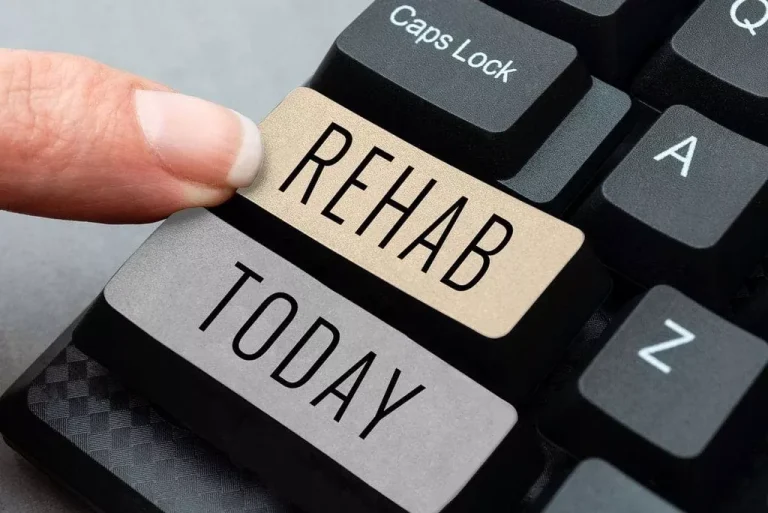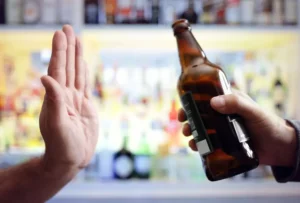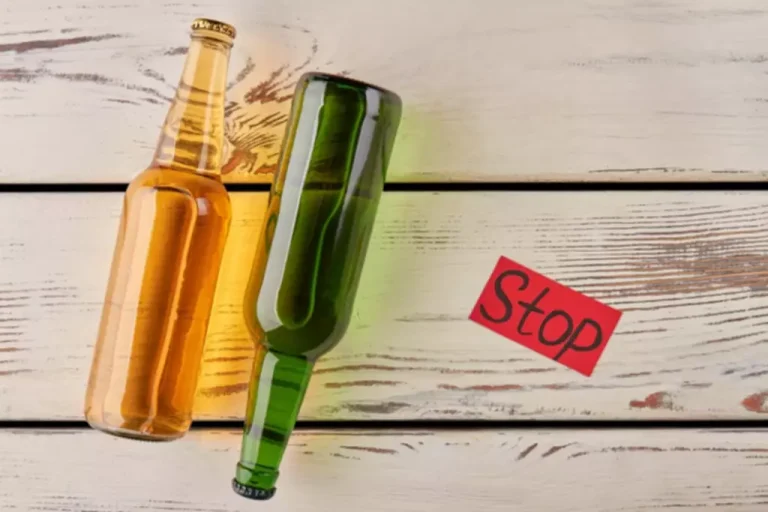
You may want to reflect on this list when you feel cravings to drink. For example, a person who is trying to quit smoking would start by deciding whether they are going to stop smoking cold turkey or gradually reduce their nicotine use. Your health care provider or counselor can suggest a support group. Stopping alcohol use abruptly is the riskiest way to quit drinking. If you feel physical cravings or withdrawal symptomswhen you quit drinking, you shouldn’t try to stop cold turkey.

Consider your approach
- Professional treatment for an alcohol use disorder can involve outpatient therapy, residential treatment, or inpatient hospitalization.
- While it has been suggested that one or two drinks per day may have health benefits, one meta-analysis found that even moderate intake has serious health risks.
- There’s a reason you’ve reached the decision to quit or cut back.
- If you answer “yes” to four to five questions, your symptoms align with moderate AUD.
- Others may have increased marital or relationship problems that are heading toward divorce or breakups.
Belinda Gordon-Battle is a licensed clinical therapist and life consultant based in Miami while providing therapeutic services across the globe. BGB, as her clients and colleagues call her, is an advocate of “removing the stigma” and normalizing the therapeutic process. She incorporates cultural relevance and non-traditional interventions and strategies to strengthen her clients’ steps towards goals of behavioral, emotional, social and mental wellness.

Avoid temptations
What matters most is your ability to maintain an open, curious outlook as you learn what does and doesn’t work for you. If you turn to alcohol to manage emotional distress, the added overwhelm can prompt the urge to drink, making success seem even more out of reach. Knowing why you drink is essential, says Cyndi Turner, LCSW, LSATP, MAC, a Virginia therapist specializing in addiction treatment and alcohol moderation. Maybe you don’t think you depend on alcohol exactly, but you still wonder whether you might be drinking too much. Others may want one-on-one therapy for a longer time to deal with issues like anxiety or depression. Alcohol use can have a big effect on the people close to you, so couples or family therapy can help, too.

Figure out how much you actually drink
Also, your risk of developing cardiovascular disease will start to decrease. Alcohol can increase your blood pressure and make your heart work https://ecosoberhouse.com/ harder. In the coming weeks, your liver will also begin to repair itself. Do your best to understand that they’re dealing with an illness.
- Thosewho aren’t addicted to alcohol may be able to quit on their own or with the help of friends.
- Your body has acclimated to quitting drinking over the past couple of years.
- But some people choose to manage alcohol withdrawal themselves.
- Combining therapy with support groups can greatly improve your odds of success.
- But if you’re committed to sobriety, it’s possible to achieve your goal.
Risks and Complications
Thosewho aren’t addicted to alcohol may be able to quit on their own or with the help of friends. If you’re considering having an occasional drink while trying to conceive, talk to your health care provider first. While medical organizations err on the side of caution, some health care providers say that light drinking around conception is likely OK. The alcohol withdrawal timeline varies, but the worst of the symptoms typically wear off after 72 hours.
Make a plan.
It is worth mentioning that nutritional status improvement occurs when someone strop drinking, which is one big reason why people may see many of the above improvements with sobriety. Fortunately, reducing your alcohol use can help improve your sleep over time, although you might experience more sleep disturbances for some time after you quit. « Furthermore, consistent use of alcohol to induce sleep only increases the need to use alcohol in the future to get to sleep, » he explains. The brain also begins to repair some of the damage and shrinkage you may have experienced while drinking. One study showed that after 6 weeks of abstinence from alcohol, brain volume increases by an average of 2%. After one week without alcohol, your risk of seizures is much less.

Unfortunately, while alcohol may make it seem like you are falling asleep quicker, it can also lead to worse sleep quality. While giving up alcohol can be a challenge, it’s important to remember that the benefits are well worth it. Nora Volkow, director of the National Institute on Drug Abuse (NIDA), calls for alcohol problems to be identified whenever possible in the pre-addiction phase. American Addiction Centers (AAC) is committed to delivering original, truthful, accurate, unbiased, and medically current information. We strive to create content that is clear, concise, and easy to understand.
- You may not need to completely reinvent your life to quit drinking, but making a few changes in your surroundings to help avoid alcohol triggers can make a big difference.
- Most recently, real-world human studies have been very positive in reporting decreases in drinking for diabetic patients treated with GLP-1s (think Ozempic and Wegovy).
- If you’ve been drinking heavily or for long periods, the impact will be more pronounced, and it will take longer for your neurotransmitter systems to restore their balance in your body.
- You don’t need to be diagnosed with alcohol use disorder in order to quit drinking.
AUD is a serious condition where someone is unable to control their use and consumption of alcohol. AUD is different to binge and problem drinking as it is an addiction and is a formal diagnosis that experts base on a set of symptoms. Staging an intervention how to overcome alcoholism involves a doctor or an intervention specialist approaching the person along with family and friends. If the previous steps do not work, and the person continues to drink and not seek treatment, it may be time to stage an intervention.
The Valley Hope experience is unique in its genuine, compassionate care style, a method that has helped tens of thousands of people find successful recovery over the last 50 years. You might turn to friends, family, and loved ones for this type of support, but this can be challenging if your past alcohol use has alienated people in your life. It can also be difficult if the people in your immediate social circle continue to drink or if they don’t support your plans to quit. Talk therapy is an important part of treatment for alcohol use disorder, but Dr. Streem says just about anyone who is making a life change, like quitting drinking, can benefit from therapy. Laying it all out in black and white can take time and some serious self-examination.

Laisser un commentaire